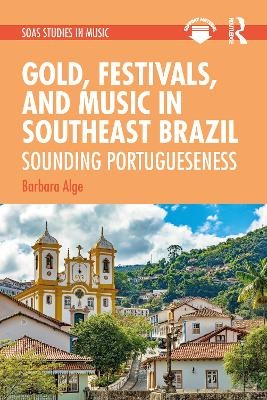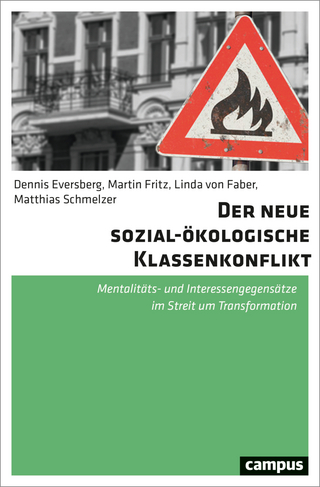
Gold, Festivals, and Music in Southeast Brazil
Sounding Portugueseness
Seiten
2023
Routledge (Verlag)
978-1-032-04237-4 (ISBN)
Routledge (Verlag)
978-1-032-04237-4 (ISBN)
Gold, Festivals, and Music in Southeast Brazil: Sounding Portugueseness is a study of the musical legacy of the 18th century Brazilian gold rush that integrates ethnographic research of the main genres of former mining communities in Brazil -- from liturgical music in the style of European art music to Afro-Brazilian musical expressions.
Gold, Festivals, and Music in Southeast Brazil: Sounding Portugueseness is a study of the musical legacy of the eighteenth century Brazilian gold rush that integrates ethnographic research of the main genres of former mining communities in Brazil – from liturgical music in the style of European art music to Afro-Brazilian musical expressions. Its content and structure are informed by Norbert Elias’s idea of the civilizing process, which is explored regarding its relevance in interpreting sociocultural processes and choreo-musical expressions in the small town of Morro Vermelho. The book’s innovative feature is its focus on a little-known area to non-Brazilian scholars, and its focus on the colonial and European heritage in Brazil.
Morro Vermelho’s cultural traditions have received relatively limited attention. The Catholic festival of Our Lady of Nazareth provides a setting for the documentation and analysis of the musical setting and is thus placed at the center of the discussion. It leads through the vast writings on Brazilian identity and challenges the view on Brazilian-ness as constructed in terms of the mixing of races. Norbert Elias’s concept of the "civilizing process" structures the book and is relevant for understanding the cultural sphere of the festival of Our Lady of Nazareth.
The book combines discourses of Portugueseness with historical sources and observations from fieldwork and community building in the virtual world. The focus on the music to support social constructions of "Portugueseness" is supported with evidence from diverse data sources: music (literature and fieldwork recordings), original interviews, marketing materials and historical narratives. The combination of archival, ethnographic, and bibliographic research methods attempts a seamless narrative. Its approach to fieldwork and frank reflections on the process and relevant issues help to contextualize the analyses and serve as useful advice for future researchers.
Gold, Festivals, and Music in Southeast Brazil: Sounding Portugueseness is a study of the musical legacy of the eighteenth century Brazilian gold rush that integrates ethnographic research of the main genres of former mining communities in Brazil – from liturgical music in the style of European art music to Afro-Brazilian musical expressions. Its content and structure are informed by Norbert Elias’s idea of the civilizing process, which is explored regarding its relevance in interpreting sociocultural processes and choreo-musical expressions in the small town of Morro Vermelho. The book’s innovative feature is its focus on a little-known area to non-Brazilian scholars, and its focus on the colonial and European heritage in Brazil.
Morro Vermelho’s cultural traditions have received relatively limited attention. The Catholic festival of Our Lady of Nazareth provides a setting for the documentation and analysis of the musical setting and is thus placed at the center of the discussion. It leads through the vast writings on Brazilian identity and challenges the view on Brazilian-ness as constructed in terms of the mixing of races. Norbert Elias’s concept of the "civilizing process" structures the book and is relevant for understanding the cultural sphere of the festival of Our Lady of Nazareth.
The book combines discourses of Portugueseness with historical sources and observations from fieldwork and community building in the virtual world. The focus on the music to support social constructions of "Portugueseness" is supported with evidence from diverse data sources: music (literature and fieldwork recordings), original interviews, marketing materials and historical narratives. The combination of archival, ethnographic, and bibliographic research methods attempts a seamless narrative. Its approach to fieldwork and frank reflections on the process and relevant issues help to contextualize the analyses and serve as useful advice for future researchers.
Barbara Alge is Professor in Ethnomusicology at Goethe University Frankfurt/Main, Germany.
Introduction
1 - Festivals and Music as Civilizing Forces in Colonial Minas
2 - History as Memory, Heritage, and Brand in Morro Vermelho
3 - Sounding the Sacred and Civilized
4 - Sounding the Afro-Brazilian Resistance
5- Conclusion: Sounding Portugueseness in Southeast Brazil
| Erscheinungsdatum | 28.09.2023 |
|---|---|
| Reihe/Serie | SOAS Studies in Music |
| Zusatzinfo | 24 Halftones, black and white; 24 Illustrations, black and white |
| Verlagsort | London |
| Sprache | englisch |
| Maße | 156 x 234 mm |
| Gewicht | 453 g |
| Themenwelt | Kunst / Musik / Theater ► Musik |
| Geisteswissenschaften ► Geschichte | |
| Sozialwissenschaften ► Ethnologie | |
| Sozialwissenschaften ► Soziologie ► Spezielle Soziologien | |
| ISBN-10 | 1-032-04237-0 / 1032042370 |
| ISBN-13 | 978-1-032-04237-4 / 9781032042374 |
| Zustand | Neuware |
| Informationen gemäß Produktsicherheitsverordnung (GPSR) | |
| Haben Sie eine Frage zum Produkt? |
Mehr entdecken
aus dem Bereich
aus dem Bereich
Mentalitäts- und Interessengegensätze im Streit um Transformation
Buch | Softcover (2024)
Campus (Verlag)
CHF 47,60


